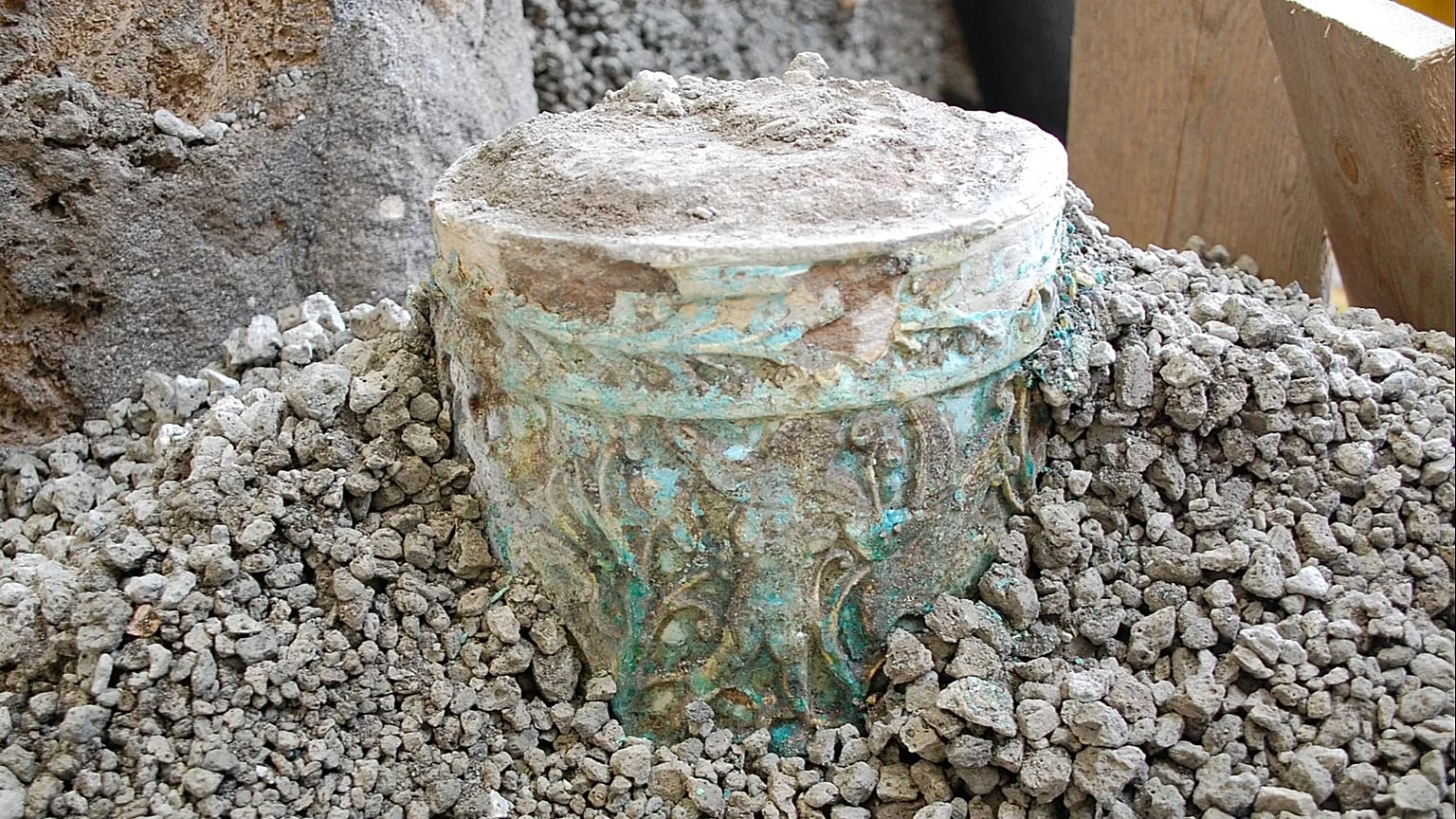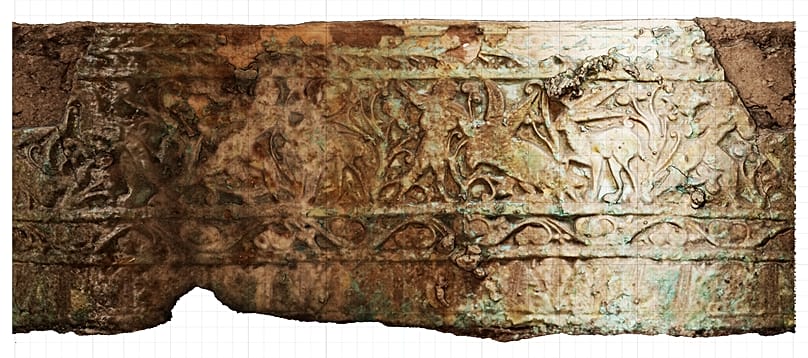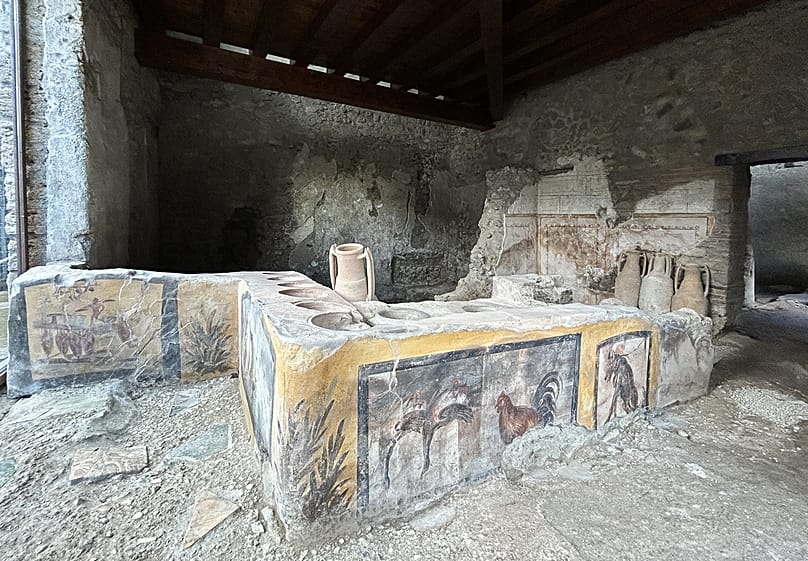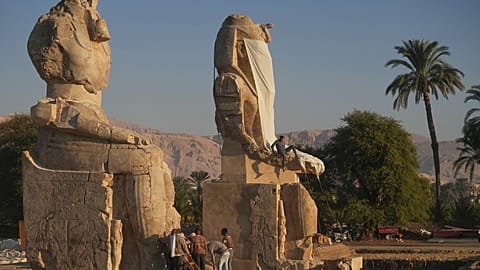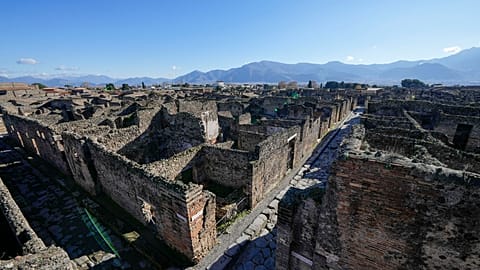The discovery in the so-called 'street food' area of the ancient city of Vesuvius is evidence of its links with Eastern cultural and religious communities at lower-middle levels of society.
A precious Egyptian vase has re-emerged in the ruins of Pompeii, in the so-called 'street food' area of antiquity, revealing unprecedented cultural and commercial links between the two civilisations.
According to the Archaeological Park of Pompeii, "hunting scenes in Egyptian style, produced in Alexandria, Egypt" are depicted on the object discovered in the kitchen of the Thermopolium of Regio V, where it was probably used as a food container.
The vase is seen as proof of the rich mix of cultures that contributed to daily life in Pompeii, before the city was destroyed by the eruption of Vesuvius in AD 79.
The Thermopolium was a real antique fast food restaurant
The rare artefact re-emerged with the excavations begun in 2023 with the aim of improving the conservation conditions of the rooms of the Thermopolium, known as the 'street food' area of ancient Pompeii.
Drinks and hot food were served here, in a real canteenwhere Pompeians ate their meals outdoors. Over the years, archaeological research has identified at least 80 similar buildings.
The Thermopolium where the Egyptian vase was found resurfaced during excavations in 2020. Here lie the remains of food traces, amphora and flasks for transporting food, while the remaining walls show representations of animals, probably slaughtered and sold on the premises.
"We see here in action a certain creativity in furnishing sacred and profane spaces, that is, the domestic altar and the kitchen, with objects that testify to the permeability and mobility of tastes, styles and probably also of religious ideas in the Roman Empire," explained the director of the Pompeii excavations, Gabriel Zuchtriegel.
Contacts between different and distant cultures were not the prerogative of the city's elites, the director added, but were also observed in common environments, in this case in "the backroom of a popina, a street food shop in Pompeii, i.e. at alower-middle level oflocalsociety, which nonetheless proves to beessential in the promotion of Eastern cultural and religious forms, including Egyptian cults".
In the Thermopolium, service rooms have also re-emerged, with a kitchen on the ground floor and a small flat on the upper floor where the managers of the business lived. The spaces were organised in a functional manner, with a bathroom next to the entrance and an area used for storing amphora and liquid containers.















